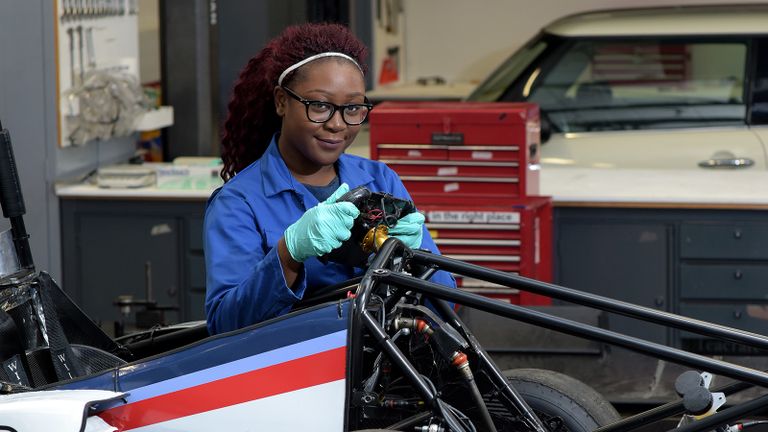Brunel University London
National rank
110
th=
77.1
%
Firsts / 2:1s
88.1
%
Completion rate
Key stats
126
th
Teaching quality
115
th
Student experience
72
nd
Research quality
90
th=
Graduate prospects

Performance
| Category | Score | Rank |
|---|---|---|
| Ranking | - | 110= (121) |
| Teaching quality | 68.3 | 126th |
| Student experience | 66.8 | 115th |
| Research quality | 34 | 72nd |
| Ucas entry points | 120 | 81st= |
| Graduate prospects | 69 | 90th= |
| Firsts and 2:1s | 77.1 | 68th= |
| Completion rate | 88.1 | 53rd |
| Student-staff ratio | 17.9 | 93rd= |
| World ranking | - | 412= (351=) |
Vital statistics
| Undergraduates |
Full-time 11,727 |
Part-time 194 |
| Postgraduates |
Full-time 4,661 |
Part-time 1,162 |
| Applications/places | 17,375/3,210 | |
| Applications/places ratio | 5.4:1 | |
| Overall offer rate | 81.4% |
Accommodation
| Places in accommodation | 4,359 | |
| Accommodation costs | £125 - £225 | |
| Accommodation contact | www.brunel.ac.uk/accommodation |
Finance
| UK/EU fees | £9,250 | |
| Fees (placement year) | £1,385 | |
| Fees (overseas year) | £1,385 | |
| Fees (international) | £16,825 - £20,450 | |
| Fees (international, medical) | £41,200 | |
| Finance website | www.brunel.ac.uk/study/undergraduate-fees-and-funding | |
| Graduate salaries | £25,000 |
Sport
| Sport points/rank | 1052.5, 39th | |
| Sport website | www.brunel.ac.uk/life/sport |
Social inclusion and student mix
| Social Inclusion Ranking | 54 | |
| State schools (non-grammar) admissions | 93.2% | |
| Grammar school admissions | 3.2% | |
| Independent school admissions | 3.6% | |
| Ethnic minority students (all) | 76.7% | |
| Black achievement gap | -16.8% | |
| White working class males | 3.6% | |
| First generation students | 50.8% | |
| Low participation areas | 3.5% | |
| Working class dropout gap | 1.9% | |
| Mature | 12.5% | |
| EU students | 6.2% | |
| Other overseas students | 17% |
Student satisfaction with teaching quality
| Education | 85.6% | |
| English | 84.4% | |
| Physiotherapy | 83.2% | |
| Anthropology | 80.5% | |
| Music | 80.2% | |
| History | 79.9% | |
| Creative writing | 79.8% | |
| Sports science | 76.2% | |
| Politics | 74.2% | |
| Sociology | 73.6% | |
| Communication and media studies | 72.9% | |
| Mathematics | 71.6% | |
| Accounting and finance | 70.9% | |
| Business, management and marketing | 70.6% | |
| Computer science | 68.7% | |
| Art and design | 67.9% | |
| Biological sciences | 67.4% | |
| Drama, dance and cinematics | 66.6% | |
| Electrical and electronic engineering | 66.4% | |
| Civil engineering | 66.2% | |
| General engineering | 64.9% | |
| Chemical engineering | 63.6% | |
| Aeronautical and manufacturing engineering | 63.2% | |
| Economics | 62.4% | |
| Psychology | 61.4% | |
| Mechanical engineering | 57.4% | |
| Law | 57.3% | |
| Subjects allied to medicine | 52.8% |